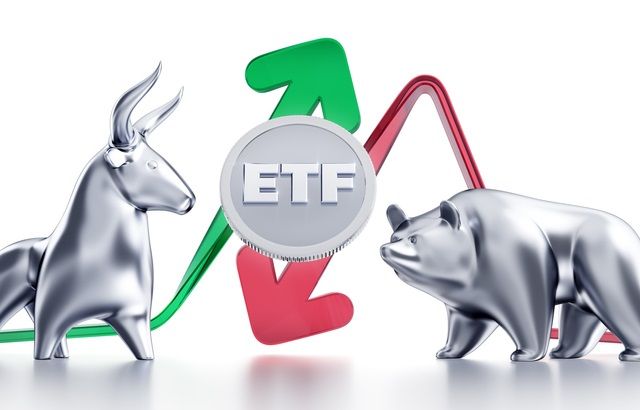Mutual funds are more at risk than index trackers of being hammered by a liquidity crisis in the next downturn because their “archaic structures and unclear pricing leaves them vulnerable,” claims Hector McNeil, chief executive of HANetf, a third-party provider of Ucits ETFs.
Many commentators argue that risks are building in exchange-traded funds (ETFs) that could exacerbate in the event of another of market sell-off. But McNeil the said the real danger for investors was in mutual funds where products could be gated in the event of a serious downturn.
“One only has to look back to events so far this year, or when there was a run on property funds in 2008, to see where the heart of any crisis could manifest itself,” McNeil said.
British fund manager Neil Woodford stopped investors from withdrawing money from his flagship €4.1bn fund last month after it racked up huge losses amid excessive exposure to illiquid assets.
“It’s commonly held that people will sell ETFs rather than mutual funds because it is easier to do so, but the reality is that there are a number of technical trading mechanisms for ETFs which reduce, rather than exacerbate, potential liquidity issues,” he added.
These mechanisms include an ETFs ability to create and redeem shares as and when needed. “Authorised participants can also aggregate buys and sells throughout the day for an ETF, reducing the friction and downside impact to the existing shareholders, unlike a mutual fund.”
Screening liquidity
“ETFs will still be impacted by the underlying liquidity of the asset class they are linked to, but the structure of ETFs means that buyers and sellers can still get a better picture of available liquidity in an ETF every day, unlike a mutual fund,” McNeil said.
ETFs that track an index typically have a liquidity screen that only includes stocks that meet a minimum liquidity measure.
“The Bloomberg implied liquidity function for ETFs is incredibly useful and goes a long way to tackling fears over ETFs ceasing up in times of stress,” McNeil said.
“This is in stark contrast to mutual funds, and the question investors should be asking more and more is why they continue to buy and sell a product without knowing the real price they pay for it.
“Indeed, the mutual fund market is one of the few things in existence where you buy or sell something without knowing the price you will be paying or the money you will be receiving back and you have to sell it back to the person you bought it from.”
McNeil co-founded white-label ETF platform HANetf in 2017.







